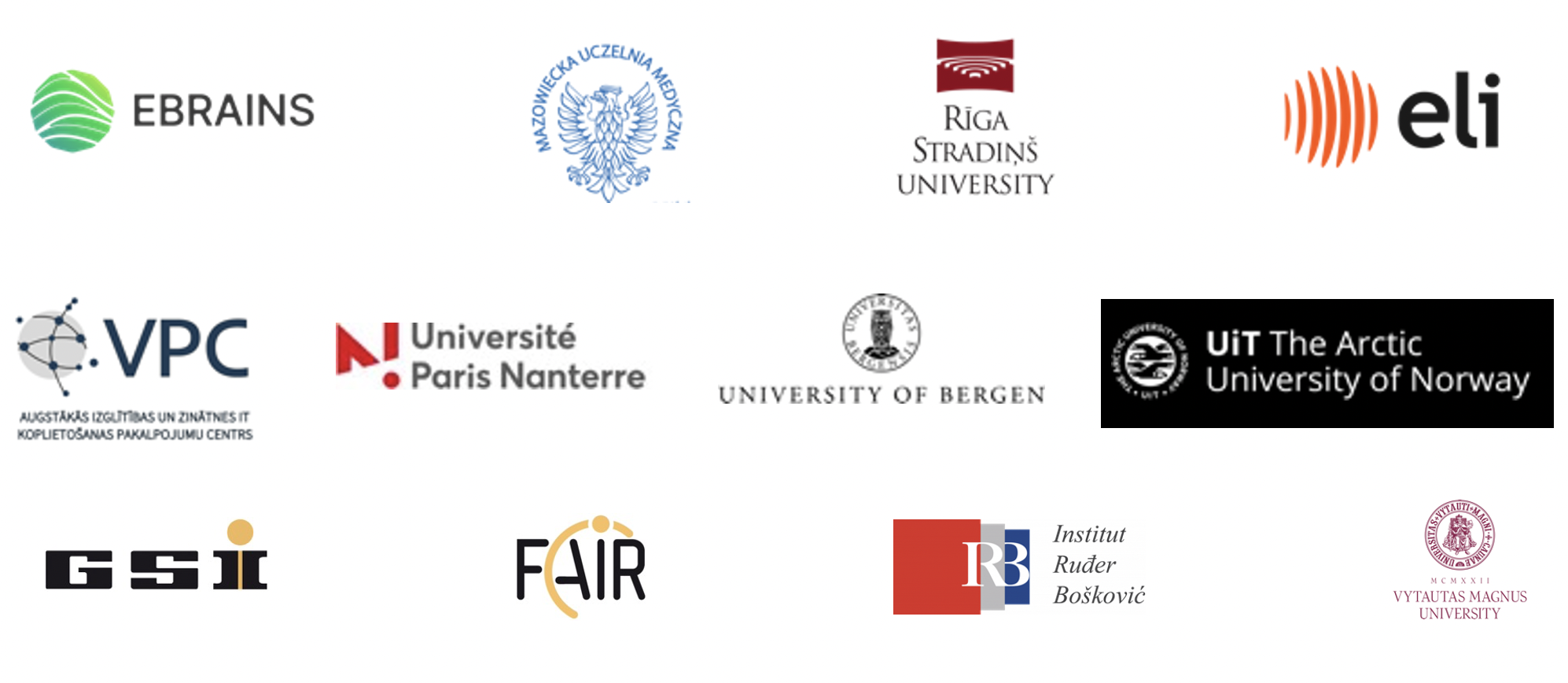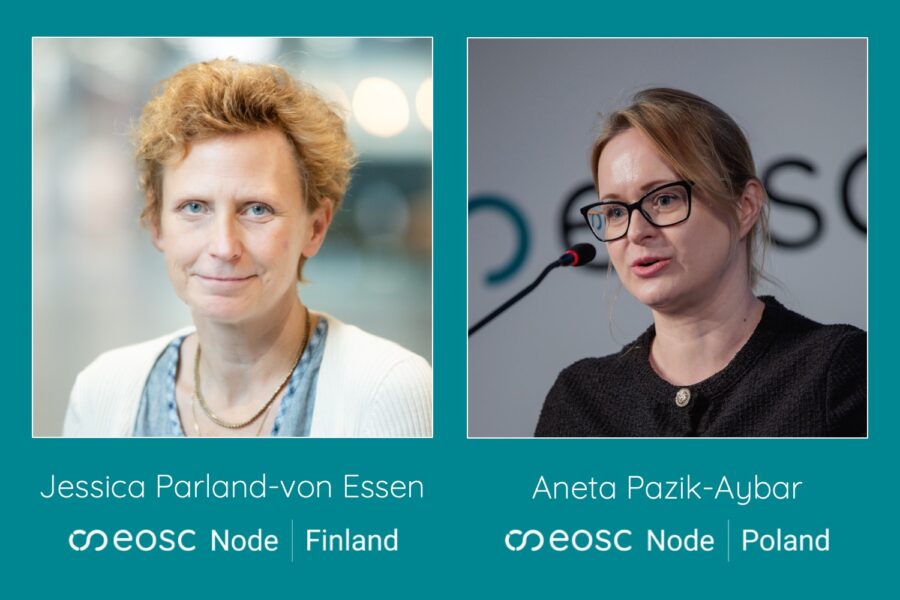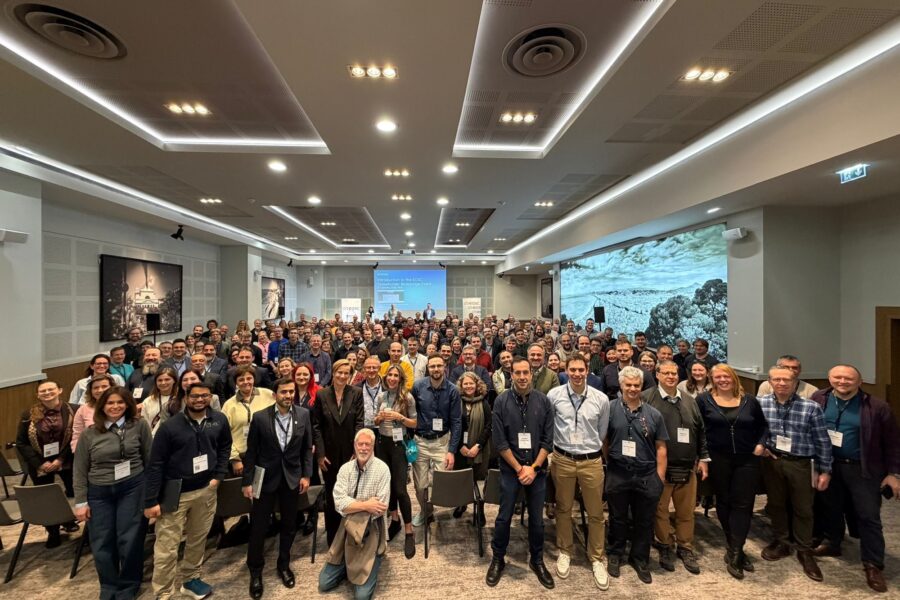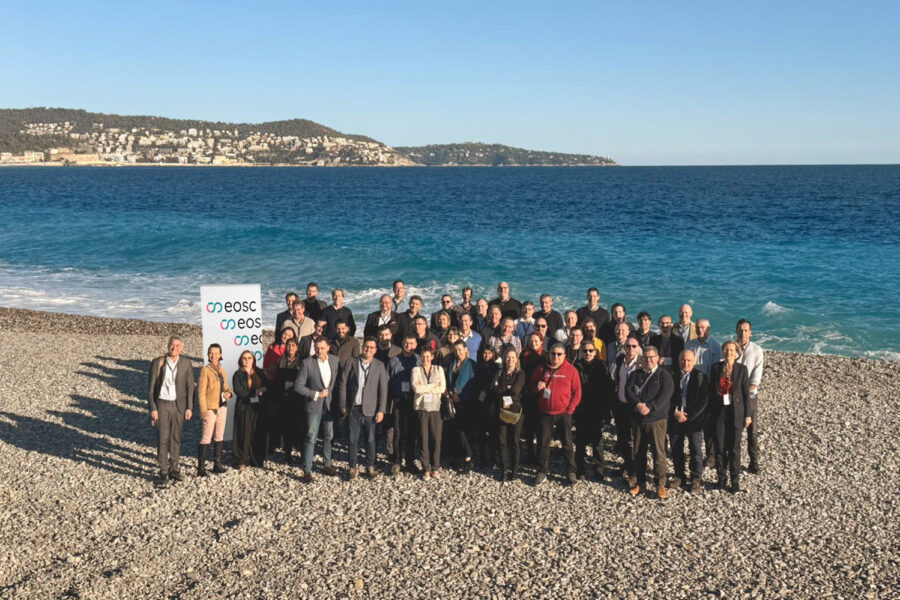From brain science to environmental research, and from lasers to particles to antiprotons, the EOSC Association is proud to introduce you to its newest Members and Observers. Among these are six European research universities, four research infrastructures, including one ERIC, a digital services provider and a national research institute, all spread across 11 European nations. One new member, Latvia’s VPC, has been designated as that country’s Mandated Organisation.
The new members and observers were voted in during the proceedings of EOSC-A’s 5th General Assembly on 28 November. Additionally, EOSC-A Member, Instruct-ERIC of the United Kingdom, made the move from Observer status to Member. This brings the organisational representation within EOSC-A to 249, including 168 Members and 81 Observers. Each Member organisation receives voting rights in the EOSC-A General Assembly through participation of a single delegate.
To become an EOSC-A Member or Observer, an organisation must:
- Be a legal entity established in accordance with the laws and customs of the country of origin or be constituted as an intergovernmental organisation pursuant to an international treaty in accordance with principles of international law. They cannot be a department of national governments or ministries;
- Confirm in writing that they embrace and endorse the vision of the Association and adhere to its values;
- Have a substantial and significant interest in, and potential contribution to or impact on, EOSC;
- Fall into one or more of the following categories of organisations: a. Research funding organisation; b. Research performing organisation; c. Service providing organisation; d. Other organisation;
- As a Member, have a presence in an EU Member State or Associated Country, or any other country associated with the EU Framework Programme for Research and Innovation; as an Observer, may be established outside this area.
New Members
| EBRAINS AISBL (EBRAINS) | |
|
EBRAINS is the digital pan-European research infrastructure that provides digital tools and services which can be used to address challenges in brain research and brain-inspired technology development. EBRAINS’ mission is to be a major enabler to advance brain research covering different areas such as neuroscience, brain health and brain-inspired technology. EBRAINS aims to contribute to significant scientific progress and innovation for the benefit of patients, industry and society as whole.
|
|
| Medical University of Mazovia in Warsaw (MUM) | |
|
The Medical University of Masovia was established in 2004. Based on the decision of the Minister of National Education and Sport, it was entered in the register of non-state vocational universities. At the Medical University of Mazovia in Warsaw, we have been training professional staff for the health care system in Poland and the EU for over 18 years. Our experience, teaching programs and innovative methods used during classes with lecturers-practitioners.
|
|
| Rīga Stradiņš University (RSU) | |
|
Riga Stradins University from Riga, Latvia is one of the leading and most advanced higher education teaching institutions in the Baltic region. The RSU research and teaching staff are professionals in their areas of expertise and are opinion leaders in the society. RSUs mission is to train highly qualified experts in the field of healthcare and social sciences, so they can serve the society of Latvia, the European Union, as well as the world.
|
|
| The Higher Education and Science Information Technology Shared Service Centre (VPC) [Mandated Organisation] | |
|
VPC or Higher Education and Science Information Technology Shared Service Centre supports the development and international competitiveness of higher education and scientific institutions of Latvia by integrating, developing and providing high-quality shared information technology services. Under the mandate of the Government of Latvia VPC is the liaison for global academic ICT services in Latvia. To date VPC members represent 58% of Latvia’s students and 64% of researchers and scientists.
|
|
| The Extreme Light Infrastructure ERIC (ELI ERIC) | |
|
ELI ERIC provides access to world-class high-power and ultra-fast lasers for science and enables cutting-edge research in physical, chemical, materials, and medical sciences, as well as technological innovations. The Czech Republic hosts the ELI ERIC seat in Dolní Břežany, at the ELI Beamlines facility. A second facility, ELI-ALPS, is hosted by Hungary in Szeged. Italy and Lithuania as founding members, Germany and Bulgaria are founding observers. ELI-NP in Romania will join at a later stage.
|
|
| University of Bergen (UiB) | |
|
The University of Bergen is a research-intensive state university located in Bergen, Norway. The university today has over 4,000 employees and 18,000 students. It was established by an act of parliament in 1946 based on several older scientific institutions dating back to 1825, and is Norway’s second oldest university.
|
|
| It is considered one of Norway’s four “established universities” and has faculties and programmes in all the fields of a classical university. | |
| Université Paris Nanterre (UPN) | |
|
Located to the west of Paris, in the heart of an area of great social and urban wealth, the University of Paris Nanterre is a multidisciplinary university that welcomes more than 35,000 students each year. Its educational offer and research activities cover the broad spectrum of humanities and social sciences, literature and languages, legal, economic and management sciences, technology, culture and arts, information sciences, engineering sciences and sports. 6 doctoral schools, 42 research units.
|
|
| University of Tromsø – The Arctic University of Norway (UiT) | |
|
UiT – The Arctic University of Norway is the 3rd largest university in Norway and the world’s northernmost university, home to 17 000 students and 4 000 employees (including 1500 faculty members and 500 PhD students) in several study locations in Northern Norway. About 120 PhDs graduate from the university annually. About 10 percent of the students are international. UiT is a broad research university offering education and academic training in subjects covering most aspects of societal development.
|
|
| Instruct-ERIC (Integrated Structural Biology Infrastructure in Europe) | |
|
Instruct-ERIC is a pan-European distributed research infrastructure making high-end technologies and methods in structural biology available to users. Our aim is to promote innovation in biomedical science. Instruct-ERIC is comprised of 14 Member Countries: Belgium, Czech Republic, Denmark, Finland, France, Israel, Italy, Latvia, Lithuania, Netherlands, Portugal, Slovakia, Spain and United Kingdom, one member International Organisation: EMBL and one Observer Country: Greece.
|
|
New observers
| Facility for Antiproton and Ion Research in Europe GmbH (FAIR) | |
|
FAIR (Facility for Antiproton and Ion Research) is an international accelerator facility for the research with antiprotons and ions which is being developed and built in cooperation with international partners. It is one of the world’s largest construction projects for international cutting-edge research. FAIR is being built at the GSI in Darmstadt. The existing GSI accelerators will become part of the future FAIR facility and serve as the first acceleration stage.
|
|
| GSI Helmholtzzentrum für Schwerionenforschung GmbH (GSI) | |
|
The GSI Helmholtzzentrum für Schwerionenforschung in Darmstadt operates a worldwide leading accelerator facility for research purposes. About 1,520 employees are working at GSI. In addition, every year approximately 1,000 researchers from universities and other research institutes around the world come to GSI to use the facility for experiments. GGSI is a limited liability company (GmbH). GSI is a member of the Helmholtz Association, Germany’s largest research organisation.
|
|
| Ruđer Bošković Institute (RBI) | |
|
The Ruđer Bošković Institute is regarded as Croatia’s leading scientific institute in the natural and biomedical sciences as well as marine and environmental research.
|
|
| Vytautas Magnus University (VMU) | |
|
Ranked among the TOP 800 universities in the world (QS World University Rankings), Vytautas Magnus University is one of the few in the region where a wide liberal arts education is imparted. VMU is an open and modern Lithuanian university which nurtures national identity and actively participates in the academic life of universities around the world. Many of the research innovations at VMU are born at the confluence of disciplines. VMU works with many universities around the globe.
|
|












